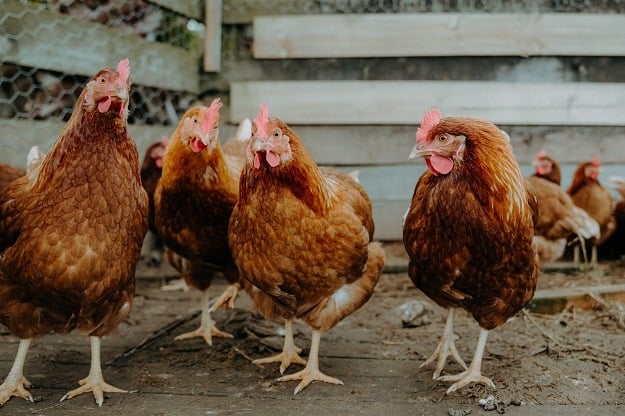
- The poultry industry is on high alert following outbreaks of Avian Flu in Gauteng.
- Ostrich and chicken meat on sale in retail outlets is safe for human consumption, authorities have said.
- Reports of wildlife bird deaths in the Eastern Cape are also under investigation, although no Avian Flu was detected.
The poultry industry is on high alert after an outbreak of Avian Flu in Gauteng.
The Agriculture, Land Reform and Rural Development Department confirmed on Tuesday that 300 birds had died of Avian Flu at a commercial chicken farm in Ekurhuleni.
Avian influenza is a viral respiratory disease believed to be transmitted by wild migratory birds. In Southern Africa, the H5N8 strain of the disease affects the poultry industry.
The Ekurhuleni farm was also part of the H5N8 highly pathogenic avian influenza (HPAI) outbreak in 2017.
"The Gauteng veterinary authorities placed the farm under quarantine and are busy with an investigation of the outbreak. They are performing back and forward tracing, to determine the extent of the outbreak and assist with safe disposal of dead chickens and disinfection of the farm," said Agriculture, Land Reform and Rural Development Department spokesperson Reggie Ngcobo.
The department was also notified of large wild bird die-offs in Stutterheim in the Eastern Cape.
"Samples from chickens that were collected at the end of March 2021 in two villages in Stutterheim tested negative (disease not present) for Newcastle disease and avian influenza. Follow-up investigations are ongoing," Ngcobo added.
No cases had been reported in the Western Cape, confirmed Daniel Johnson, spokesperson for the province's Agriculture MEC Ivan Meyer.
Plans
The South African Poultry Association has placed the industry on high alert, and appropriate biosecurity contingency plans are being implemented, added Johnson.
"Ostrich and chicken meat on sale in retail outlets is safe for human consumption. We must, however, remain vigilant. It is important to report sick or dead birds - both wild birds and poultry - to local authorities, veterinary services, public health officials and community leaders," he added.
Farmers and poultry producers are encouraged to heighten their biosecurity measures to prevent potential virus introduction from wild birds or their faeces, said Johnson.
"It is crucial to keep poultry and other animals away from wild birds and their body fluids through screens, fencing or nets. Commercial poultry operations and backyard poultry owners should avoid introducing the virus through contaminated clothes, footwear, vehicles or equipment used in waterfowl hunting."
